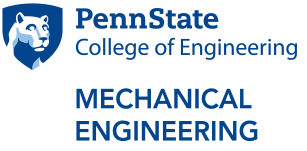Diagnostic Advances in Turbulent Flame Studies of Heavy Hydrocarbon Fuels
ABSTRACT: Turbulent combustion of energy-dense, liquid fuels is at the core of aviation applications in gas turbine and scramjet combustors. The stability of these devices is dependent on intricate extinction mechanisms due to turbulence-chemistry interactions and coupling of multi-component fuel droplets with the flame. Typically, a variety of laser-based and optical diagnostics are applied in gaseous fuel studies. However, with the use of liquid fuels, challenges arise from interfering broadband fluorescence and scattering signals from fuel droplets and vapor. New diagnostic strategies for planar laser-induced fluorescence (PLIF) imaging in liquid fuel flames have been developed for topological measurements which yield new insights in extinction processes, flame stretch effects, and potential avenues for simpler experimental methods.
BIOGRAPHY: Dr. Patton M. Allison is an Assistant Professor in the Department of Mechanical Engineering at Michigan State University. He manages the Advanced Diagnostics and Combustion Lab (www.pmallison.com) which focuses on fundamental turbulent combustion studies of transient processes and diagnostic development for complex fuels. As an instructor, he teaches courses in propulsion and aerodynamics, for which he received the 2020 Withrow Teaching Excellence award. Dr. Allison completed his PhD in Aerospace Engineering at the University of Michigan in 2013 and was a postdoctoral researcher at the Ohio State University and University of Cambridge before starting at Michigan State in 2017.
Media Contact: Serena Sidwell


